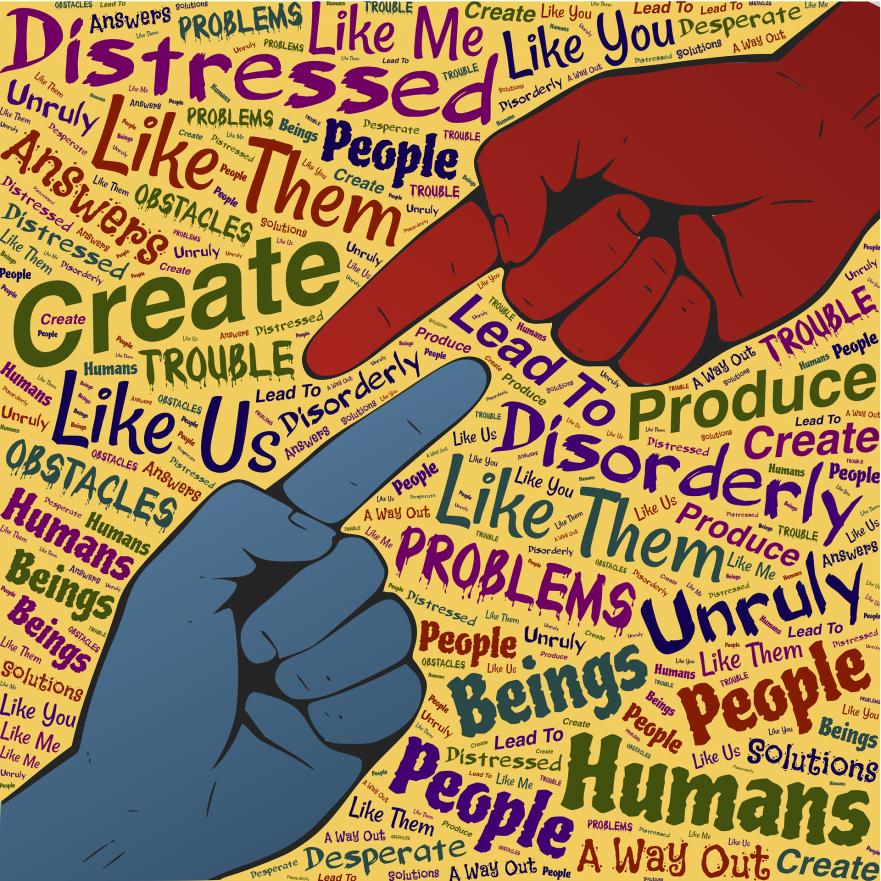“A house divided against itself, cannot stand.”
When Lincoln uttered this quote in his famous “House Divided” speech, it wasn’t the first time the sentiment had been expressed. Variations of the quote and the idea behind it are scattered throughout history, all the way back to the bible.
A belief in unified purpose and its necessity for the success of a group or organization is a core value that has endured over time.
This is true for education as well. Unity and collaboration are key to any successful educational organization. Educators, administrators, parents, and lawmakers should be allies in the goal of supporting students’ academic, physical and social-emotional well-being. This holds true in the best of times, as well as times of crisis.
Never should unity have been more evident than during a global pandemic. Education’s metaphorical house and its occupants should have been ready to unite in common purpose. Instead, we have seen too much division.
There are so many challenges that accompany teaching during a pandemic. Most of them are unavoidable. Anxiety, technology challenges, and curriculum and training needs are predictable and expected hurdles. But, the lack of unity was not an inevitable obstacle. Nevertheless, discord has crept in and here we are.
In the struggle and confusion of pandemic teaching, we should be allies. Instead, so much division has been created. Spending just a few minutes on any social media platform, perusing the news reports, or attending a governing board meeting casts a bright light on the division within our “house.” Parents and teachers have been shoved into separate corners. Colleagues with different levels of risk tolerance are infighting. School staff, district administrators, and governing boards are often operating from very different perspectives. Local districts are being forced to make decisions for which they aren’t equipped and will face certain ire no matter which decision they make.
While occupants of our house are allowing unity to wither, the division is growing. The distrust and resentment are not beneficial to students or the long-term success of our educational institutions.
Much of the blame for the division lies squarely with the lack of leadership at the top. It turns out local control, which is usually coveted in the education world, is not the best strategy in a crisis like a global pandemic. When important decision-making is pushed down to local school districts, it creates a breeding ground for discontent, blame, and infighting among stakeholders who should be working together. Without clear and decisive leadership, worried and anxious people begin to turn on each other, creating a divided house.
Despite what I am seeing, I am hopeful trust can be rebuilt as we begin to pull ourselves out of this unprecedented crisis. There are some things our state leadership can do to facilitate the restoration of unity that needs to occur.
Our legislative session in Arizona began a few weeks ago. There are actions I would like to see them take. I believe they will help reduce fear and anxiety among education stakeholders and thereby begin to bridge the divide.
Funding
Providing additional funding to schools to support costs associated with technology expenses, mitigation efforts, and teacher training would ease the financial worry of district leaders.
Additionally, funding should be provided for tutoring, interventions, and remediation for students. The idea that students are “falling behind” is contributing to the division. Parents need to know there is financial support and commitment to closing some of the pandemic learning gap. This will help ease some of their concern with their children’s academic progress.
Accountability
Place a pause on accountability protocols that are based on the high stakes standardized test. In reality, any data we obtain this year is going to be unreliable. Students will not be taking the test under the same circumstances, making growth comparisons difficult at best and invalid at worst.
Removing this unnecessary pressure will help reduce the anxiety and allow districts and their stakeholders more leeway to make health based decisions.
Uniform Guidelines
Science based metrics for the opening of businesses and school buildings need to be agreed upon and enforced on a statewide basis. Allowing metrics to be optional pits localities against each other and creates the type of division we are seeing. Creating statewide uniformity for safety protocols will go a long way toward rebuilding unity and collaboration as it will remove unnecessary and harmful competition.
Ultimately, those of us living in the education house will be responsible for our reunification. But, I’m hoping our state leaders can take some bold actions that will help bridge the divide they’ve helped create.
What are your ideas? How can we rebuild unity and trust in the education community?
Photo credit: John Hain from Pixabay










Comments 2
I’ve come close to this idea, but didn’t have the vocabulary to fully express it. Thank you for giving voice to what so many of us are feeling!
This is excellent. As a career teacher and now HR Director and a mom and a person living in a small community, I feel all these feelings. We all know that education is vital. We all know that there are kids to serve. Now let’s sit down and discuss how to do it in a way that makes sense not just not, but moving forward. At the end of the day, funding plays such a big role. It is February and the reality is, districts are not only looking to what is happening tomorrow and what may be happening with testing, but they are thinking about what is going to happen for fall. That is no way to plan long term and that creates a house divided.